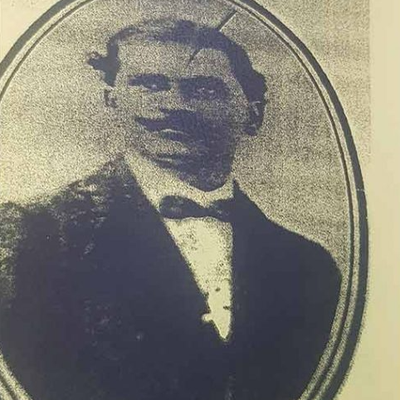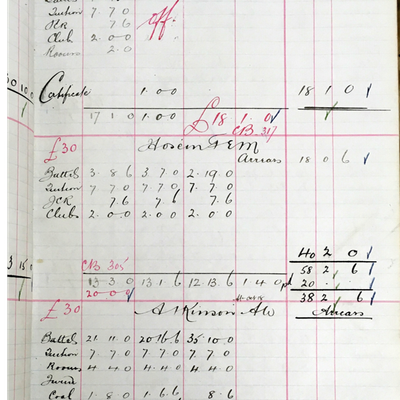Francis Evelyn Mahommed Hosein, 1880-1936 (SJC: 1902-1906)
He was born in 1880 to a family of Indian origin in Trinidad. After the abolition of slavery by the British in the Caribbean, thousands of Chinese and Indian indentured labourers were brought from their homes to former slave plantations and contracted to work as bonded labour with little or no remuneration for a period of several years after which they were released from their contracts. Conditions for Chinese and Indian indentured labour in the Caribbean and Latin America were often harsh and little removed from conditions of slavery.
In 1901 F. E. M. Hosein became the first Indo-Trinidadian to win an island Scholarship to Oxford. He matriculated at St. John’s College in 1902, and graduated with a 4th in Jurisprudence in 1906. Hosein was called to the Bar at Lincoln's Inn and returned to Trinidad between 1908-9, where he practiced as a barrister, but also had a noteworthy political career, as an activist and leader of the Young East Indian Party. He was Mayor of Arima from 1929-31. In 2015, the country’s 53rd year of Independence, the Trinidad & Tobago Guardian celebrated Hosein’s contribution amongst other “heroes, pioneers , and role models”.[i] However, while for some Hosein is an imposing founding figure of modern Trinidadian national culture and identity, and he has been as a liberal proponent of Afro-Indian solidarity, others have seen Hosein in a less sympathetic light, accusing him of using racist arguments against Afro-Trinidadians to further the growth of a narrow national consciousness amongst the Indian Community.[ii]
[i] https://www.guardian.co.tt/article-6.2.369513.a6954ef2eb
[ii] Tony Martin, “African and Indian Consciousness” in General History of the Caribbean: Vol. V, The Caribbean in the Twentieth Century, P. C. Emmer et al., Paris, London and Oxford, 2004, 224-281, 266.

